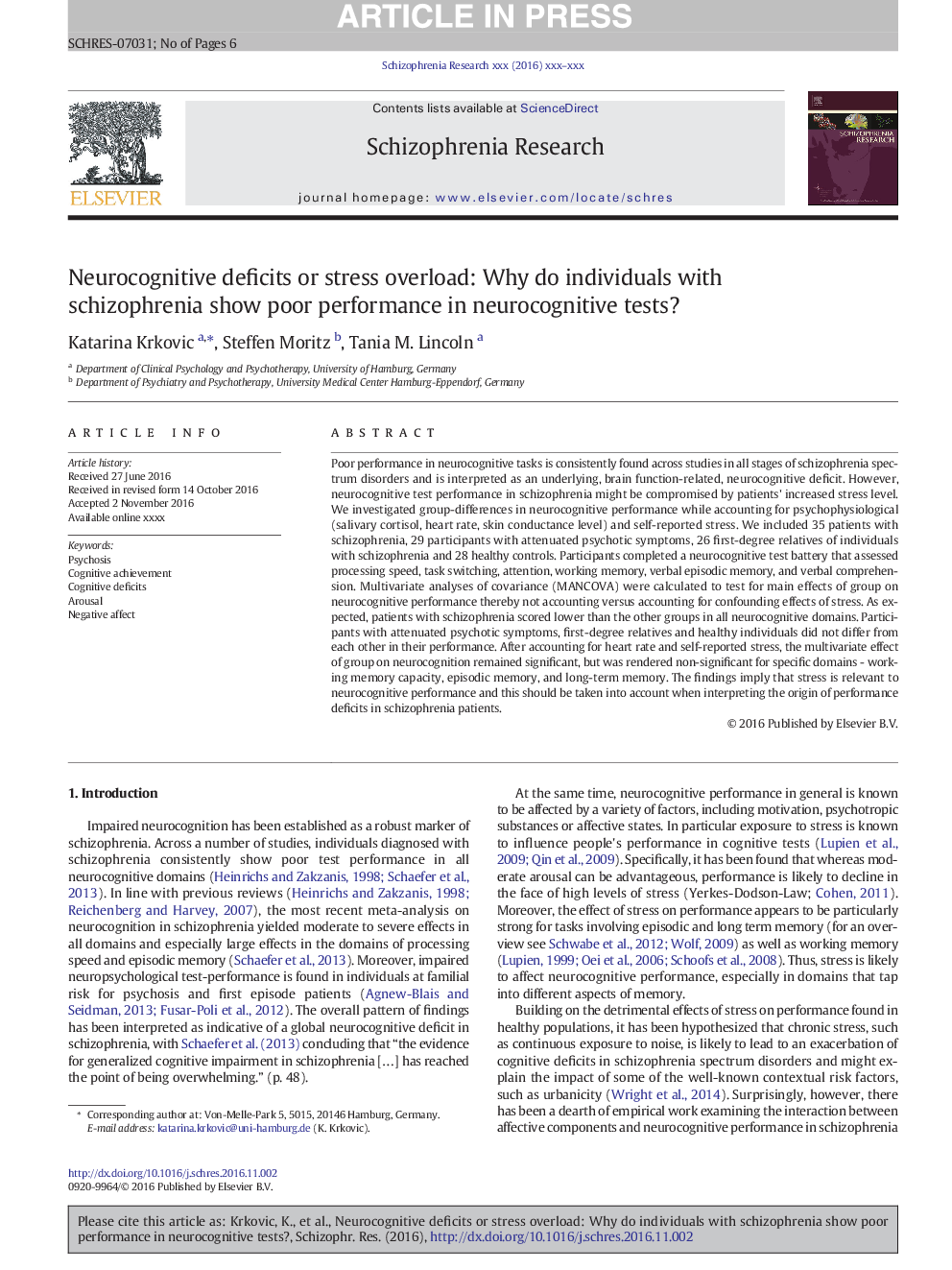ترجمه فارسی عنوان مقاله
نقص عصبی شناختی یا اضافه بار استرس: چرا افراد مبتلا به اسکیزوفرنی عملکرد ضعیف در تست های عصبی شناختی را نشان می دهند؟
عنوان انگلیسی
Neurocognitive deficits or stress overload: Why do individuals with schizophrenia show poor performance in neurocognitive tests?
| کد مقاله | سال انتشار | تعداد صفحات مقاله انگلیسی |
|---|---|---|
| 150742 | 2017 | 6 صفحه PDF |
منبع

Publisher : Elsevier - Science Direct (الزویر - ساینس دایرکت)
Journal : Schizophrenia Research, Volume 183, May 2017, Pages 151-156
ترجمه کلمات کلیدی
روانپریشی دستاوردهای شناختی، نقص شناختی، انگیختگی، تأثیر منفی،
کلمات کلیدی انگلیسی
Psychosis; Cognitive achievement; Cognitive deficits; Arousal; Negative affect;

